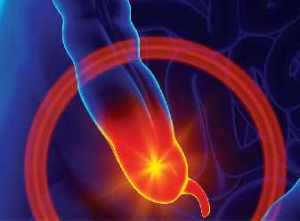

MedFriendly®


Rudiment
Rudiment has several definitions: 1) An organ or
structure that is not completely or perfectly developed,
2) The first indication of a structure in the course of the
development of an individual, 3) A basic principle,
element, or skill, such as in a field of learning (e.g.,
mastering the rudiments of biology or chemistry). In
medicine, the first two definitions above are the most
common applications of rudiment, typically to describe
body parts in embryos that are in their earliest
recognizable form, such as on an ultrasound scan.
The appendix is a type of rudiment.
FEATURED BOOK: Atlas of Human Anatomy
An embryo is a fertilized egg from the time of conception until the 8th week of pregnancy.
Ultrasound scanning is a procedure that uses high-frequency sound waves to produce
images of internal body structures.
Rudiment is also used in the field of medicine to refer to vestigial body structures.
Vestigal body structures are ones that appear to no longer have a specific function for a
given species (but did in the distant past). An example is the appendix (part of the
intestine) that was used by human ancestors to digest cellulose (a structural component
of plants) back when those ancestors primarily ate predominantly plant-life and
vegetables. Rudiment is also known as rudimentum. Rudimentary means pertaining to a
rudiment. Rudiment comes from the Latin word "rudimentum" meaning "a beginning."
"Where Medical Information is Easy to Understand"™
















